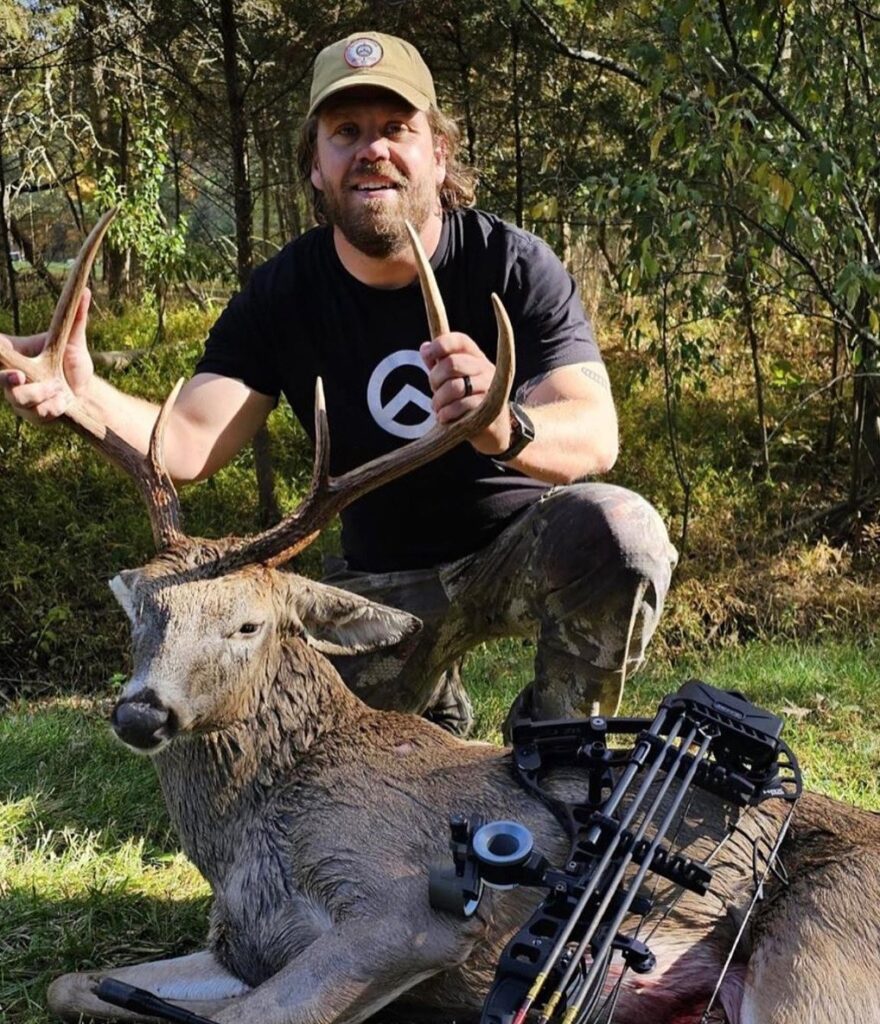Making Hunting More Accessible: Spartan Forge and New Beginnings
Former NFL champion Derek Wolfe sits down with Bill Thompson, the creator of Spartan Forge and a 22-year military veteran, to discuss hunting technology, conservation, and the evolution of modern hunting practices. Their conversation reveals how military intelligence expertise can transform the hunting experience through innovative technology.
Thompson’s journey from military intelligence to hunting app creator is as fascinating as it is unexpected. Beginning his military career at 17, Thompson initially planned to become a military policeman but ended up in intelligence work due to a forgotten driver’s license at his MEPS processing. This serendipitous turn led to a career spanning various intelligence disciplines, including radar exploitation, cyber operations, and human intelligence.
Transitions and the Creation of Spartan Forge
Thompson describes his transition from military service to entrepreneurship. His creation, Spartan Forge, emerged from his own hunting experiences and the recognition that existing hunting apps weren’t meeting the needs of modern hunters. The app combines LIDAR mapping, weather data, and sophisticated analytics to help hunters achieve greater success in the field.
One of the most compelling aspects of their discussion centers on making hunting more accessible to newcomers. Thompson shares how his own background influenced Spartan Forge’s mission, recalling his days as a young hunter in North Dakota who couldn’t afford expensive hunting resources. This experience led him to create a free version of Spartan Forge that provides essential features like property lines and public land information – making hunting more accessible to those with limited means.
The technological innovations Thompson discusses are impressive. He describes new features like “Cyber Scout,” a large language model trained with the hunting knowledge of experts like Aaron Snyder, and “Eagle Eye Imagery,” which provides 45-degree angle views of terrain rather than just overhead shots. These advancements demonstrate how modern technology can enhance traditional hunting practices without diminishing the fundamental skills and experience required for successful hunting.
A Commitment to Conservation
Conservation emerges as a central theme in their conversation, with both men expressing deep commitment to responsible wildlife management. Thompson details how Spartan Forge supported conservation efforts by offering 20,000 free accounts to donors of Colorado’s Responsible Wildlife Management (CRWM). This initiative highlights the intersection of technology and conservation, showing how digital tools can support traditional conservation efforts.

Bill and Derek address common misconceptions about hunting, particularly regarding mountain lion hunting in Colorado. Wolfe shares his experience with the backlash he received after harvesting a mountain lion, highlighting the importance of educating the public about conservation and wildlife management. Both men emphasize how proper hunting practices contribute to wildlife conservation and population management.
Thompson’s commitment to veterans is evident throughout the conversation. He describes how Spartan Forge organizes veterans’ hunts, with proceeds split between conservation efforts and veterans’ organizations. This dual focus on supporting both conservation and veterans showcases how hunting technology can serve multiple positive purposes within the community.
The technical aspects of Spartan Forge reveal Thompson’s military intelligence background. He explains how the app incorporates multiple mapping layers, including three different satellite maps, topographical information, and landowner data. These features demonstrate how military-grade technology can be adapted for civilian use, making hunting more efficient and accessible.
Their conversation also touches on the evolution of hunting technology and its impact on the hunting experience. While some traditionalists might resist technological advances, Thompson and Wolfe agree that tools like Spartan Forge don’t replace traditional hunting skills but rather enhance them. The app helps hunters make more informed decisions about where and when to hunt, while still requiring fundamental hunting knowledge and expertise.
The pricing structure of Spartan Forge reflects Thompson’s commitment to accessibility. He explains that while the premium version offers advanced features, the free version provides essential functionality comparable to expensive competitors. This approach ensures that cost doesn’t become a barrier to entry for aspiring hunters, particularly young people interested in the sport.
Looking to the future, Thompson shares exciting developments planned for Spartan Forge. The integration of artificial intelligence through Cyber Scout and the implementation of advanced imaging technology demonstrate how hunting apps continue to evolve. These innovations suggest a future where technology and tradition work together to enhance the hunting experience while promoting conservation.
The conversation between Wolfe and Thompson illuminates how military expertise can translate into civilian innovations. Thompson’s background in intelligence work clearly influenced his approach to developing hunting technology, resulting in a sophisticated tool that serves both experienced hunters and newcomers to the sport.
Their discussion serves as a reminder that hunting is about more than the harvest – it’s about conservation, community, and passing on traditional skills to future generations. Through Spartan Forge, Thompson has created a bridge between traditional hunting practices and modern technology, making the sport more accessible while maintaining its fundamental values.



